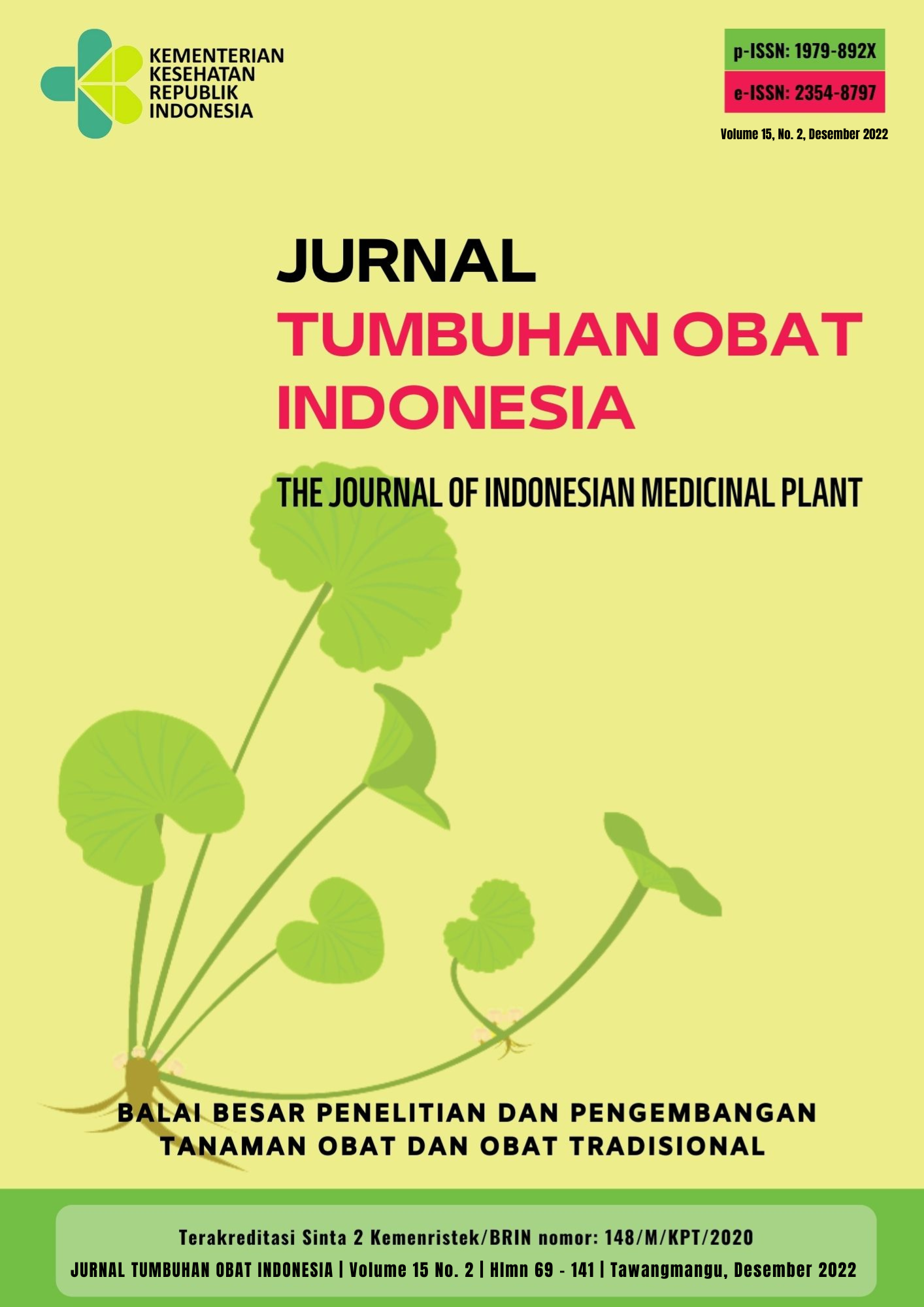THE INFLUENCE OF SHALLOT SOLUTION ON COLEUS (Plectranthus Scutellarioides (L.)) SEEDLING
Abstract
Nurseries are the main critical phase in the cultivation of Coleus (Plectranthus scutellarioides (L.) R.Br.), which is useful as a raw material for traditional medicine. The key to producing well-grown, healthy, and uniform seedlings is using exogenous hormones throughout the seedling stage. Shallot has the potential to be used as an exogenous hormone. The study was conducted with shallot concentration treatment (0, 35, 70, and 100%) and soaking time (0, 12, and 24 hours). The results show shallot's activity as an exogenous hormone in coleus seedlings, including increasing the root volume of coleus seedlings through the initiation of root hairs, altering seedling height, and stimulating seedling adventitious shoot growth. Conversely, high concentrations of shallots reduced the number of coleus seedling shoots.
Copyright (c) 2022 Jurnal Tumbuhan Obat Indonesia

This work is licensed under a Creative Commons Attribution-NonCommercial-ShareAlike 4.0 International License.








